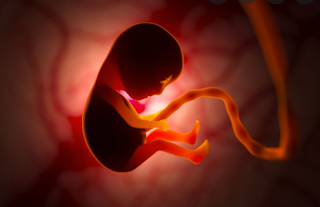COVID-19: Recovering from Covid-19 may provide temporary immunity from reinfection says scientists.
 |
| Antibodies getting ready to attack a Covid-19 cell |
According to scientists, persons who have recovered from Covid-19 and their bodies make antibodies, may enjoy immunity from the virus for up to six (6) months or more. Research was done by two (2) scientific research groups in the US which show this may be possible.
The results of the research may be a good sign for the new vaccines' potential effectiveness, since they work by provoking the recipient's immune system to make antibodies.
One study was done by the US National Cancer Institute and the other was published by the New England Journal of Medicine.
The US National Cancer Institute (USNCI) used samples procured from two private labs, from more than 3 million people who had antibody tests done. The study published by New England Journal of Medicine study involved more than 12,500 health workers at Oxford University Hospitals in the United Kingdom.
According to Dr. Ned Sharpless, director of the USNCI, "It's very, very rare" to get reinfected, revealing that people with antibodies from natural infections were “at much lower risk ... on the order of the same kind of protection you’d get from an effective vaccine,” of getting the virus again.
The institute’s study had nothing to do with cancer — many federal researchers have shifted to coronavirus work because of the pandemic.
Both studies used two types of tests. One is a blood test for antibodies, which can linger for many months after infection. The other type of test uses nasal or other samples to detect the virus itself or bits of it, suggesting current or recent infection.
The USNCI research team noted that only 0.3% of those who initially had antibodies later tested positive for the coronavirus, compared with 3% of those who lacked such antibodies.
As for the Oxford University group, their findings were released to the public Wednesday, December 23, and showed that from the group of 12,500 workers, 1,265 had coronavirus antibodies at the outset, and of that subset only two (2) tested positive within the following six months but neither developed symptoms.
That contrasts with the remaining 11,364 workers who did not initially have antibodies since 223 of them had a positive Covid-19 test result in the six months that followed.
Commenting on Oxford University's recent study, Dr. Sharpless said, "It’s very gratifying" to see that they also saw the same risk reduction. Persons with antibodies are 10 times less likely to have a second infection.
His institute’s report was posted on a website scientists use to share research and is under review at a major medical journal.
The findings are "not a surprise ... but it’s really reassuring because it tells people that immunity to the virus is common," said Joshua Wolf, an infectious disease specialist at St Jude Children’s Research Hospital in Memphis.
He however noted that, "antibodies themselves may not be giving the protection, they might just be a sign that other parts of the immune system, such as T cells, are able to fight off any new exposures to the virus," he said.
He did express a bit of skepticism saying, "We don’t know how long-lasting this immunity is."
Noting that there have been reports of persons getting COVID-19 more than once, he cautioned, "people still need to protect themselves and others by preventing reinfection."







Comments
Post a Comment